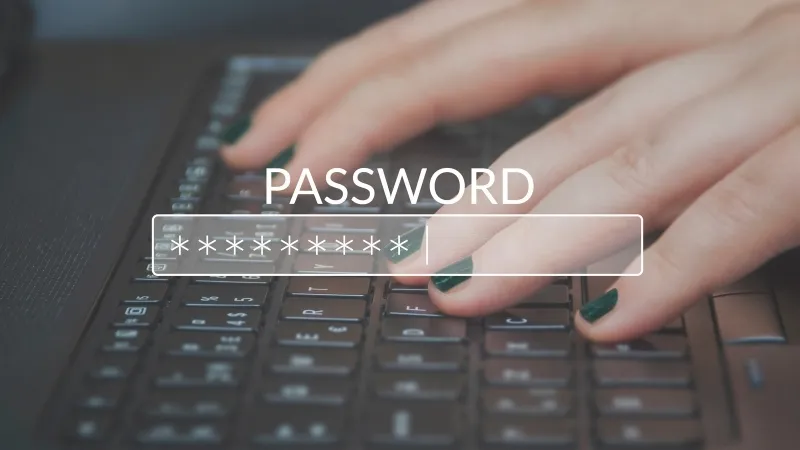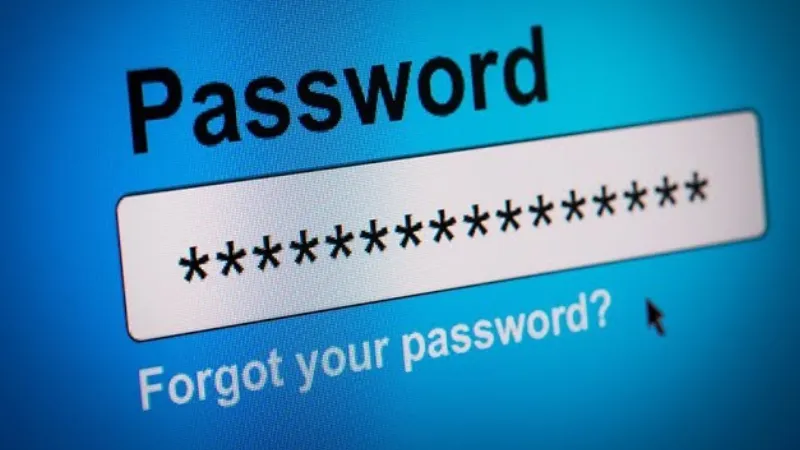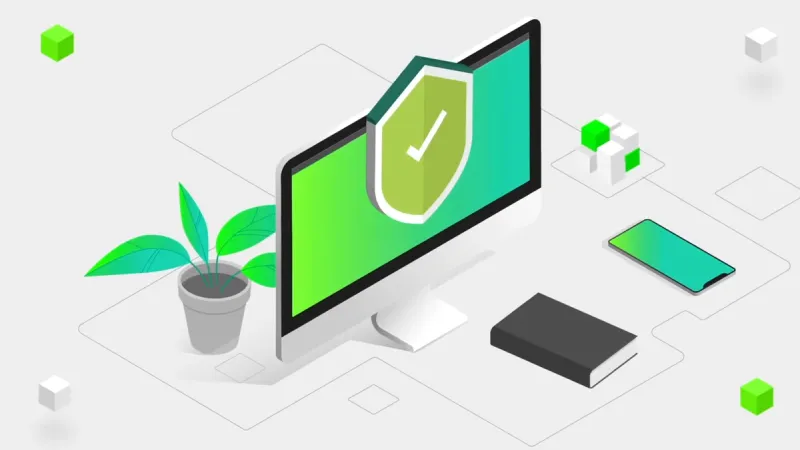
When creating a secure password, length matters greatly. You might think that a few letters and numbers will suffice, but that’s far from the truth. Cyber-security experts recommend a minimum of 12 characters, but opting for 14 or more greatly enhances your password’s strength.
The reason is simple: longer passwords increase the number of possible combinations, making it harder for hackers to crack them. To further bolster security, your password should include a mix of uppercase letters, lowercase letters, symbols, and numbers.
Additionally, verify that your password is remarkably different from any previous passwords you’ve used. So, how many characters should you aim for, and how to create a strong password? Understanding this can greatly impact your online security, leading you to rethink your current approach.
How to Create a Strong Password for Increasing Cyber-Security?

Creating a strong password is a critical step in enhancing cybersecurity. A well-crafted password acts as a robust barrier against unauthorized access and cyberattacks. Below is a detailed guide to creating a strong password while considering modern cybersecurity practices:
Avoid Easy-to-Guess Passwords
People often underestimate the importance of avoiding easy-to-guess passwords, which can greatly compromise your cyber security. To protect your digital assets, steer clear of using personal information such as birthdays, names, or any commonly used words like “password” or “admin.”
Cybercriminals often exploit these predictable choices, making it easier for them to gain unauthorized access to your accounts. Instead, consider creating a password that combines uppercase and lowercase letters, numbers, and special characters.
For example, instead of using “timetravel,” opt for something like “T!m3@Tr@v3l.” This not only increases the complexity of your password but also makes it considerably harder for attackers to crack.
Leverage Length and Complexity
A strong password isn’t just about avoiding easy-to-guess options; it also hinges on length and complexity. Aim for a password that’s at least 12 to 16 characters long. Longer passwords exponentially increase the number of possible combinations, making them considerably harder for attackers to crack.
Incorporate a mix of uppercase letters, lowercase letters, numbers, and special characters. For example, a password like “%N7gL3k&yPzQ1$.” is robust due to its length and varied character types. This diversity makes it more resistant to common hacking techniques, such as brute-force attacks.
Alternatively, consider using a passphrase. These are typically longer sequences of words or phrases that are easier to remember. A passphrase like “SunsetsAre#Golden88” combines length and complexity effectively. It’s memorable but still challenging for hackers to decipher.
Limit the Risk of Single Compromised Passwords
To enhance your cyber-security, limit the risk associated with a single compromised password. One effective strategy is to avoid reusing passwords across multiple accounts.
When you use the same password for different platforms, a breach on one site can lead to a domino effect, compromising your other accounts. This risk increases considerably if your accounts contain sensitive information.
Instead, create unique passwords for each account. This practice minimizes potential damage by isolating breaches to individual accounts. Use a password manager to help you generate and store complex passwords securely. If you don’t remember every password, you won’t be tempted to reuse them.
Follow NIST Guidelines
While creating a strong password is essential for enhancing your cyber-security, following the National Institute of Standards and Technology (NIST) guidelines can simplify the process.
NIST says users should be able to create longer passwords without having to comply with arbitrary complexity rules. This approach promotes the use of memorable yet secure passwords. Instead of forcing complexity, consider using passphrases, combinations of words or phrases that have personal significance.
Modifying these phrases slightly can add an extra layer of security without sacrificing memorability. For instance, you might choose a favorite quote or song lyric and tweak it with numbers or alternate capitalization.
Try to Encrypt Your Passwords
Encrypting your passwords is vital for bolstering your cyber-security. When you store passwords, make certain they’re encrypted using strong hashing algorithms like bcrypt or SHA-256.
By transforming your passwords into a fixed-length string of characters, attackers can’t retrieve the original password even if they get access to your database. In the event of a breach, encrypted passwords are far harder to exploit.
Pro Tips for Extra Security Against Cyber-Security

To enhance your cyber-security, consider implementing Multi Factor Authentication (MFA) and other security methods for an added layer of protection.
Implement Multi-Factor Authentication (MFA)
Implementing Multi-Factor Authentication (MFA) is essential for enhancing your account security. By requiring a second verification step, such as SMS, email, or biometrics, MFA adds an extra layer of protection.
This means even if someone compromises your password, unauthorized access to your accounts becomes considerably more difficult. To get started, enable MFA on all critical accounts, including email, banking, and social media. Most platforms offer easy-to-follow instructions for setting up MFA.
Use a Random Password Generator & Managers
To create robust passwords, consider using a random password generator. These tools generate complex passwords that are difficult to guess, considerably reducing your vulnerability to cyber threats.
Password managers complement this by securely storing your passwords, so you don’t have to remember each one. They allow you to use unique passwords for every account without the mental burden of recalling them all.
Avoid Reusing Passwords
Reusing passwords is a major vulnerability that can lead to widespread account breaches. When you use the same password across multiple accounts, a single compromised password can provide cybercriminals with access to all your accounts.
To enhance your security, verify every account has its distinct password. This practice greatly reduces the likelihood of multiple accounts being compromised in the event of a breach.
Be Aware of Phishing Scams
Maintaining unique passwords for each account is just one part of a robust online security strategy. You must also be vigilant about phishing scams, scams that steal passwords and personal info. Phishing typically involves tricking you into clicking malicious links or sharing your credentials unknowingly.
Always verify URLs before clicking links. Look for subtle misspellings or unusual domain names that may indicate a fraudulent site. If an email seems suspicious, don’t click any links or download attachments from unknown sources. These attachments can contain malware designed to compromise your system.
Use Secure Networks
Using secure networks is essential for safeguarding your sensitive information from cyber threats. Public Wi-Fi networks are often unsecured, making your data vulnerable to interception by cybercriminals.
To enhance your security, always use a Virtual Private Network (VPN) when accessing public Wi-Fi. A VPN encrypts your internet connection, effectively shielding your data from prying eyes. This added layer of protection guarantees that even if someone intercepts your information, it remains unreadable.
How does encryption protect passwords?
While passwords are essential for securing your accounts, encryption plays a critical role in protecting them from unauthorized access. When you create a password, it’s converted into an unreadable format through encryption algorithms.
This process transforms your plain text password into a complex string of characters, making it nearly impossible for attackers to interpret. If a hacker manages to breach a database storing encrypted passwords, the stolen data remains highly secure.
What is the role of MFA in protecting against brute force attacks?
Even with strong encryption safeguarding your passwords, brute-force attacks require additional security layers. Multi-factor authentication (MFA) greatly enhances your security posture by requiring a second authentication factor beyond just your password.
This could be something you have, like a smartphone, or something inherent to you, like a fingerprint. When an attacker attempts a brute force attack, they use automated tools to guess your password repeatedly until they find the correct one.
Strength in Diversity: Power of Mixing Characters and Symbols
In a digital world teeming with threats, your password is your fortress. By crafting a strong password of at least 12 characters, and ideally 14 or more, you’re weaving an intricate web of security. Each uppercase letter, lowercase letter, number, and symbol adds another layer to your defense.
Regularly updating this shield keeps you one step ahead of potential intruders. Remember, a robust password isn’t just a line of defense; it’s your gateway to a safer online experience.
